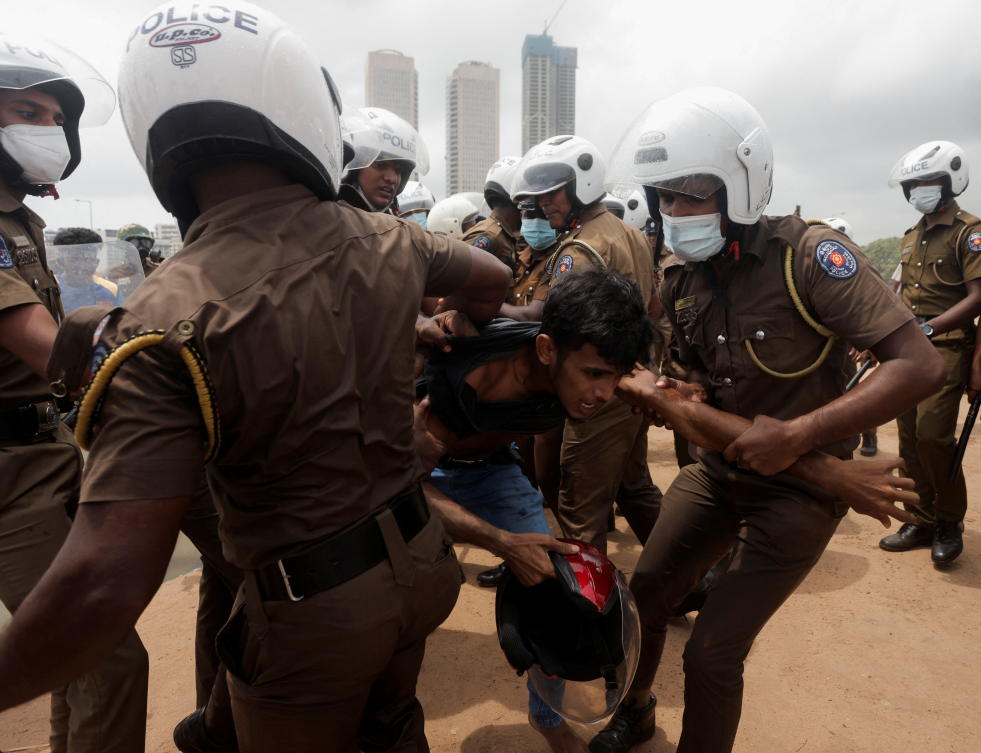COLOMBO: Sri Lanka’s Prime Minister Mahinda Rajapaksa resigned on Monday, a government official has confirmed, as the island nation’s worst economic crisis since independence led to widespread protests against the ruling administration.
The South Asian country is on the brink of bankruptcy and has suspended payments on its foreign loans. Sri Lankans, suffering from months of blackouts and dire shortages of essential items such as food and fuel, have been taking to the streets in largely peaceful protests demanding the government steps down.
On Monday, violent clashes erupted between supporters of Sri Lanka’s ruling party and anti-government protesters in Colombo, where police also fired tear gas and water cannons to drive back the demonstrators.
“Prime Minister Mahinda Rajapaksa tendered his resignation from the premiership to the president in the afternoon on Monday,” Rohan Wellivita, media secretary to the prime minister, told Arab News.
In a copy of his resignation letter seen by Arab News, Rajapaksa said his government “is not solely responsible” for the economic crisis, adding that problems have been brewing since the country’s independence and “it got aggravated due to the COVID pandemic.”
“I am prepared to sacrifice my post for the betterment of the nation,” the letter reads, adding that he was quitting to help form an interim, unity government.
The premier’s resignation, which means that the entire cabinet is dissolved, came after a day of chaos and violence that culminated in authorities imposing a nationwide curfew and the deployment of armed troops in the capital. At least 138 people were wounded in the violence, according to reports.
Until recently, President Gotabaya Rajapaksa and his ruling family have resisted calls to resign, with the government also facing a no-confidence motion in parliament. The president is the prime minister’s younger brother.
Supporters of the Rajapaksa family, some reportedly armed with iron bars, attacked the anti-government demonstrators at the “Gota Go Gama” tent village that has become the focal point of nationwide protests. The violence marked the first major clash between the two camps since protests began in late March.
As anti-government protests continued to escalate, the president declared a state of emergency on Friday, which gave sweeping detention powers to the military and allowed him to make laws without parliamentary approval.
Hit hard by the pandemic and rising oil prices, Sri Lanka had announced earlier this month that it was defaulting on its $51 billion foreign debt. Finance Minister Ali Sabry said last week that the country’s usable foreign reserves have plummeted below $50 million.
The government is in talks with the International Monetary Fund for a bailout, and is set to continue discussions in a virtual summit with IMF officials this week aimed at securing emergency assistance.




